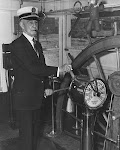We ended the last reading block after the second chapter of the Melchester section. Now we'll read from there all the way to the end of the Part Fourth, which is around page 260 in most versions of the book, so it's about 120 pages of reading from where we left off.
Plan to finish that section by Nov. 30 and we'll have the comment period on Dec. 1-2.
Also, if you're participating in this club then you should really plan to give your comments after each reading block. If some of you REALLY don't want to comment then you don't have to, but the point of this club is to get the discussion going so everyone's thoughts are important. Don't be shy.
Thursday, November 22, 2007
Thursday, November 15, 2007
Christminster

Here's a rendering of Hardy's Wessex. The great city, our modern Oxford, is the strongest symbol in the book so far. Jude learned of it then dreamed of it in the first section. Now he arrives at Christminster, but his ideals are quickly overcome by the reality of his situation in the city.
Work
I like the constant undertone of Jude as a worker. He worked as a youth as a matter of circumstance. He labored through the ancient texts, teaching himself, but slowly, methodically, at the pace of a chisel hammering against a stony resistance.
Now at Christminster he finds work in his familiar field. He doesn't earn very much, so he works to survive, but surviving is work. As ever, he is up to the task.
Sue
Sue is immediately the opposite of Arabella. Not impulsive, not impetuous, she is reliably staid. Hardy portrays her morality and virtue from the start; she works in a shop selling religious curios and seems to be quite under the thumb of the lady proprietor.
It's convenient but a little unconvincing just how easily Jude encounters Sue in the city. I also found it to be a little unrealistic just how fond Sue and Jude were of each other from the beginning. They hadn't been acquainted for seemingly twenty years or more, but they became fast friends at once. Maybe in those days it was the norm to be so affectionate with a relative right away.
Sue and Christminster are both ideals in Jude's mind, but both are elusive and, to this point, deliver disappointment to Jude's eagerness. Neither is at fault; Jude's own idealism seems to be constantly letting him down. To that point, Phillotson is a third ideal that fails to live up to Jude's expectations, and moreso he appears to be the guy that will end Jude's hopes for romance with Sue.
The drunkeness and return to Alfredson
We're all sad sometimes. What would our lives be like if we were only defined by what we do in our times of disappointment? Not pretty.
So we can note Jude's lapse of judgment but we can't judge him to be "that" person. Like anyone would, when times were too hard to bear alone Jude returned to his home. Jude and we alike are quickly reminded that the aunt isn't any kind of soothing for the troubled soul. Still, he was drawn. Maybe Jude is such an idealistic person because his constant reality has always been so bleak. That bleakness doesn't suit him; he didn't stay at Alfredson very long.
Sue and Melchester
We'll see what happens here, but I'm of the opinion that Jude is going to blossom in a place where he's not a slave to his ideals. It seems like an average place where an average person can make a way for himself. In Melchester, like in Christminster, there are still undertones of a Christianity that binds Jude down, holds him back, outdistances him for Sue's affections.
But recall the instance when Sue bought the busts of the Greek figures to display in her apartment. There's something inside of Sue that is going to let her explore beyond the strictures of her mostly bottled-up life so far. To me, those Greek figures suggest a non-religious, or extra-religious journey for Sue. That they have literary significance suggests that the journey is going to involve Jude.
"Shall we go and sit in the Cathedral?" he asked, when their meal was finished.
"Cathedral? Yes. Though I'd rather sit in the railway station," she answered, a remnant of vexation still in her voice. "That's the centre of the town life now. The Cathedral has had its day!"
Let's hear your thoughts, club. We'll keep the comment period open through Sunday, Nov. 18. I'll post the reading schedule for the next block on Sunday night.
Labels:
Christminster,
Jude Fawley,
Melchester,
Oxford England,
religion
Subscribe to:
Comments (Atom)
